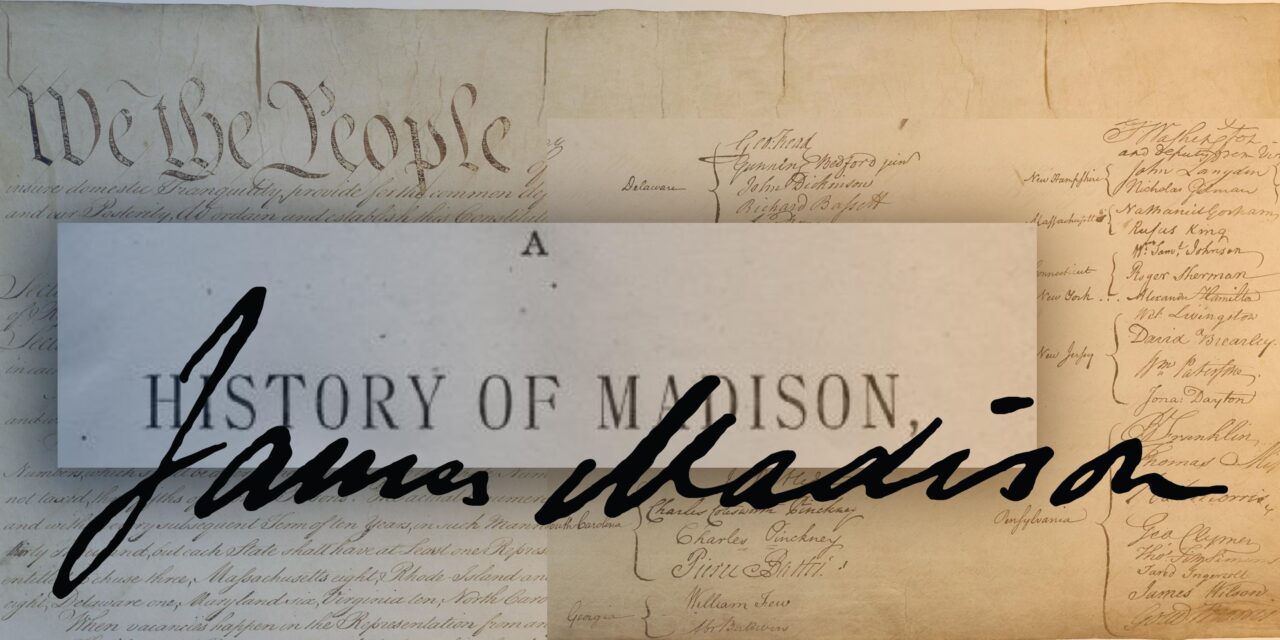James Madison, is considered the father of the Constitution, as well as many other things and people. Madison played a pivotal role in shaping the United States government. His vision for Congress and the principles he embedded in the Constitution remain relevant today, even as we face challenges both unprecedented and all too familiar.
The Constitution establishes the structure of the federal government and outlines the powers and responsibilities of its three branches: legislative, executive, and judicial. The legislative branch, consisting of the Senate and the House of Representatives, is responsible for creating laws. The executive branch, led by the President, enforces those laws, while the judicial branch, headed by the Supreme Court, interprets them. This system of checks and balances helps prevent any single branch from becoming too powerful.
The Bill of Rights, which consists of the first ten amendments to the Constitution, protects individual liberties such as freedom of speech, religion, and the right to bear arms. These amendments place limits on the government’s power and safeguard the rights of American citizens.
The Amendment Process: Article V of the Constitution outlines the process for proposing and ratifying amendments. Amendments can be proposed in two ways: either by a two-thirds vote in both houses of Congress or by a national convention called by two-thirds of the state legislatures. After being proposed, an amendment must be ratified by three-fourths of the states (currently 38 out of 50) to become part of the Constitution.
The amendment process was designed to be challenging to ensure that changes to the Constitution have broad support and are not made lightly. Throughout U.S. history, this process has been used to address a range of issues, from expanding civil rights to modifying the structure of the government.
Point 1: Protecting Individual Rights Against Factions
Madison recognized the dangers posed by factions and their potential to infringe upon individual rights. In Federalist No. 10, he argued that the diversity and size of the proposed republic would help control the negative effects of factions. Today, we face similar challenges as powerful governmental entities, corporations, and organizations threaten individual rights in the digital realm. To protect these rights, we must reaffirm Madison’s commitment to safeguarding individual liberties against the undue influence of factions.
Point 2: Fostering Transparency and Accountability
Madison envisioned Congress as a deliberative body, where representatives would engage in thoughtful discussions and decision-making processes. In the digital age, the development and deployment of emerging technologies like AI systems and algorithms often lack transparency and accountability. To uphold Madison’s vision, we must insist on public oversight and clear guidelines for these technologies to ensure they align with our democratic values.
Point 3: Representing Diverse Perspectives
Madison believed in the importance of representing diverse perspectives in government, as evidenced by his support for a large and diverse republic. However, discrimination and systemic barriers continue to hinder the equitable enjoyment of rights for many individuals in the modern era. To truly represent the diversity of our nation, we must actively work to dismantle these barriers and ensure that every voice is heard and protected.
Point 4: Adapting the Constitution to Emerging Challenges
Madison and the Founders demonstrated remarkable foresight in crafting a Constitution that could adapt to the needs of their time. As we grapple with the challenges posed by technological advancements and societal changes, it becomes clear that our existing constitutional framework may not sufficiently address these issues. Just as the Founders adapted the Constitution to meet the needs of their era, we must be willing to expand upon its principles to ensure that it continues to protect individual rights and promote the common good in the digital age.
Point 5: Empowering Individuals in the Digital Age
Madison emphasized the role of the people in selecting virtuous representatives who would uphold their interests and protect their rights. In the digital age, individuals often face challenges in maintaining control over their personal data and digital identities, leaving them vulnerable to exploitation and abuse. To empower individuals, we must grant them greater control over their personal information and establish clear mechanisms for reporting violations and seeking remedies when their rights are infringed upon.
Point 6: Ensuring Legislative Responsiveness
Madison saw Congress as the primary law-making body, tasked with creating legislation that reflects the will of the people and addresses the needs of the nation. As technology continues to evolve at a rapid pace, it is essential that Congress remains responsive to the new challenges and opportunities presented by the digital age. By granting Congress the power to enforce provisions related to self-determination and privacy through appropriate legislation, we can ensure that our laws keep pace with the changing times and protect the rights of all individuals.
Point 7: Maintaining Checks and Balances
Madison’s vision of the courts as a check on the other branches of government remains essential to maintaining the balance of power and protecting individual rights. In the digital age, the judicial branch will play an increasingly important role in interpreting and enforcing rights related to self-determination and privacy. By ensuring that the courts have the authority and resources necessary to fulfill this role, we can maintain the system of checks and balances that Madison and the Founders envisioned.
Point 8: Embracing Flexibility and Adaptability
Madison recognized that the Constitution needed to be flexible enough to adapt to future challenges and changing circumstances. The rapid pace of technological change and the emergence of new societal and environmental issues highlight the need for our constitutional framework to remain adaptable. By embracing a spirit of flexibility and providing for regular review and adjustment of constitutional provisions, we can ensure that our governing principles remain relevant and effective in the face of evolving challenges.
By upholding the principles of individual rights, transparency, diversity, and adaptability, we can create a framework that protects the fundamental right of self-determination in the face of new challenges. It is our responsibility to build upon the foundation laid by those that came before us, by learning their lessons, to make more perfect this union.





